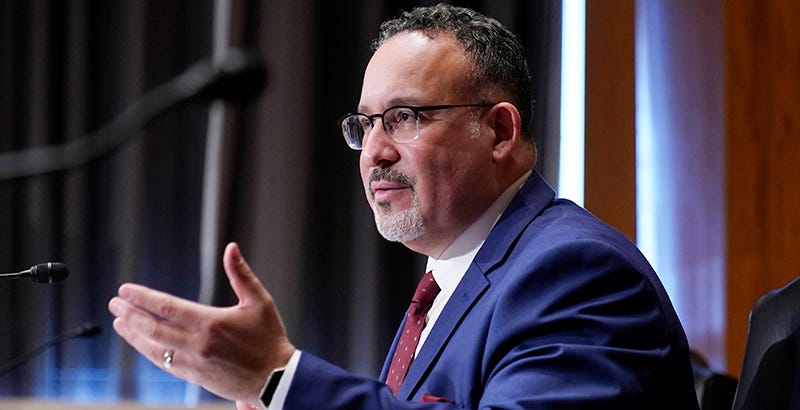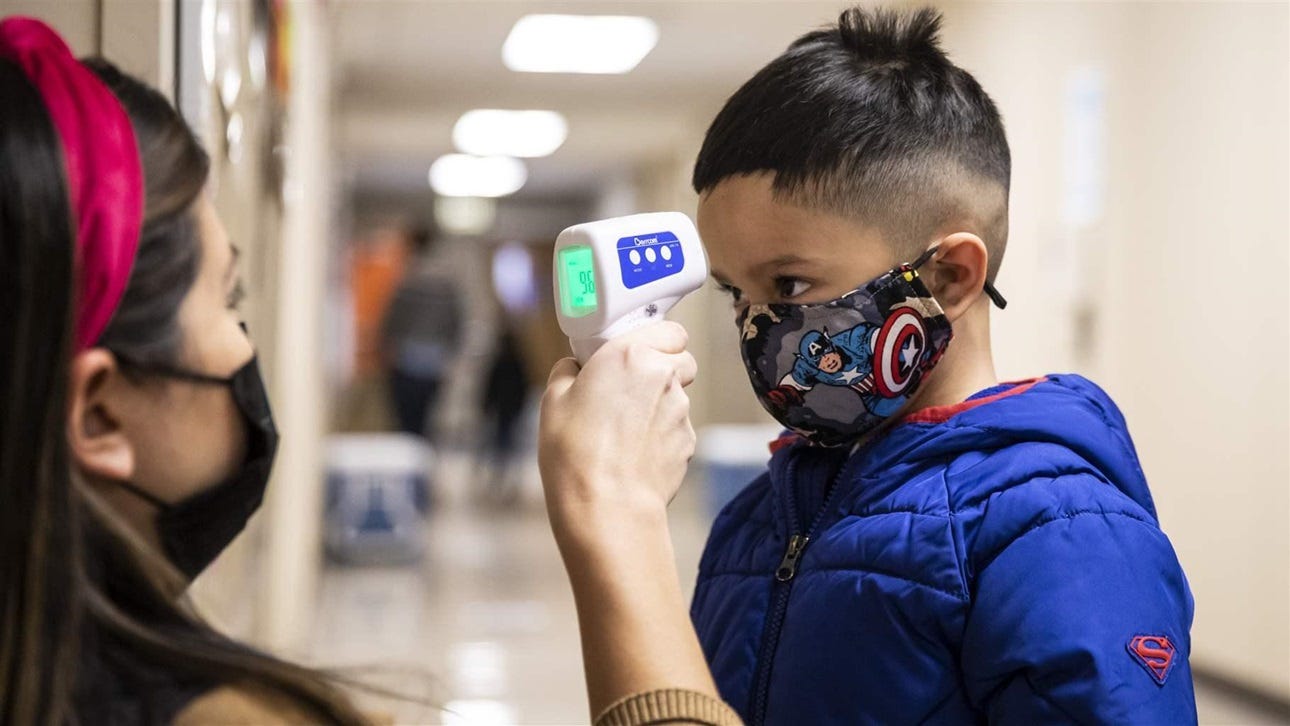Many of us are managing a lot of spinning plates today: homeschooling, taking care of family members, working, going to school, day-to-day chores, and the silent stressors of physical and social distancing. There were a couple moments this week where it seemed a lot of my spinning plates may come crashing down. But, on Friday afternoon I had a brief moment to reflect on how my week went and felt an overwhelming sense of gratitude for my kids, family, teachers, colleagues, and community.
My baby’s daycare was able to facilitate care through two staff testing positive for COVID because they have skillfully managed to cohort teachers and students (and they did it all with smiles and warm wishes).
My son’s kindergarten teacher had our supplies delivered and the person dropping them off greeted me at the door in the morning with smiling eyes and a big thank you. It made me miss being at the school building.
My husband remembered to pickup my daughter’s blankets from daycare on Friday so we won’t be suffering through any sleepless nights this weekend.
These small things, like many others that happened this week, can go unnoticed- with all of the spinning plates. But, the relational connections in our lives make up the fabric of how we experience the world. Our children and youth experiencing the pandemic from their bedrooms and home with limited outings will have a very unique appreciation for friendships and community as they grow-up. When I think of myself as a fourth grader, like my daughter, I cannot imagine being kept from my lunchtime chats, playground games, and after school dance class. I am hopeful that we are turning the corner out of rigid quarantine expectations, but I am also grounding in this moment to recenter the enormous value of social connections with one another and make that a core feature of how we educate our youth.
CONGRESS AND UNITED STATED DEPARTMENT OF ED
This week the Senate Health Education Labor and Pension (HELP) Committee held the confirmation hearing for Biden’s Secretary of Education nominee, Dr. Miguel Cardona. Dr. Cardona was asked questions about a variety of topics including reopening schools, assessments, and accountability. The HELP committee will vote on Cardona’s nomination on February 11. The House also passed the budget resolution for fiscal year 2022, setting the stage for President Biden to move forward with the American Rescue Plan without GOP support. The American Rescue Plan may allot up to $130B for K12 education that will support Biden’s goal to reopen schools in his first 100 days.
Biden meeting with GOP senators Monday on coronavirus relief | The Hill
The Economics of the American Rescue Plan | The White House
Testimony as prepared for delivery by Dr. Miguel Cardona | Miguel Cardona
LEARNNG ACCELERATION
Most of the research released about US student learning trajectories in 2020-2021 has been completed by assessment vendors or nonprofits. It is a meaningful time for school districts to begin releasing what outcomes they have collected, no matter how incomplete. The pandemic has sounded a broad call-to-action across social services: we need data to ensure public transparency and accountability.
Indiana Bill Would Offer $150 Million For COVID Learning Recovery | IN
The COVID-19 Pandemic and Student Achievement on Ohio’s Third-Grade English Language Arts Assessment | OH
Louisiana launches tutoring initiative to address unfinished learning, improve academic achievement | LA
EdResearch for Recovery released a set of briefs | Annenberg
A Nation of Readers | CCSSO
Colorado joins multistate effort to improve how teacher prep programs cover reading | Chalkbeat
We’ve built schools for a modern economy - but they overlooked our modern democracy | Brookings
Voices from the classroom: A survey of America’s Educators | E4E
REOPENING SCHOOLS
Like many other shifts occurring at our nation’s capitol with the new administration, the move to reopen schools is now centering on data more than ever. The US Education Department announced this week that they will charge the IES National Center on Education Statistics to begin collecting national data on school reopening metrics like the types of learning models, enrollment by instructional mode, race/ ethnicity, and other subgroups, and the average number of synchronous and asynchronous hours. That said, as many of you know, there are other complications to this work (e.g. teacher union contracts and high-risk family members).
Top Biden adviser: Schools on track to open by April | The Hill
Q&A: 10 questions Oregon parents have about school re-entry during COVID-19 | ODE
CDC director says guidance on reopening schools to be released in the coming week | CDC
Despite CDC evidence, teachers unions want kids to stay at home | AEI
Teaching innovation: New School Staffing Strategies Inspired by the Pandemic | FutureEd
ED Announces National Survey to Gather Critical Data on School Reopening | USED
Teachers’ Unions, Collective Bargaining, and the Response to COVID-19 | AEFP
ASSESSMENT AND ACCOUNTABILITY
When questioned by Senator Richard Burr (R-NC) about testing and ESSA accountability during his hearing this week, Dr. Cardona responded with a non-answer-answer. Shortly after the hearing finished a large coalition of civil rights advocacy organizations released a statement urging Dr. Cardona, if sworn in, to refrain from a broad waiver for state assessment and accountability requirements. This all feels a little like deja vu from last spring, however there are some US students (like my own children) who are nearly a whole year into distance learning with no standardized academic learning data. It is incredibly important that we don’t go any longer without shining a flashlight and a casting a safety on and around our students and families. Now is the time for us to protect our communities.
Accountability as a Roadblock to Assessment Reform | The Center
Joint letter to Dr. Miguel Cardona Urgin Rejection of Waivers | Ed Trust
States Move Forward with Focus on Data to Guide Pandemic Recovery, While Some Seek Waivers | Understanding ESSA
State board approves changes to school accountability system | KY
UPCOMIG EVENTS
Monday, February 8 (4 PM ET) EdWeb webinar on The Brain and Reading: Why Learning to Read is Hard and What to Do About It
Tuesday, February 9 (11AM EST) The Hunt Institute presents Homeroom with Education Leaders: Using Data to Support the Non-Academic Needs of Students
Wednesday, February 10 (2PM ET) AASA webinar on What’s Up in Washington?
Thursday, February 11 (10AM ET) Senate HELP committee vote to nominate Dr. Cardona to serve as Secretary of Education.
Thursday, February 11 (1PM ET) The Hunt Institute webinar on Governing Principals: Equity Centered Assessment Policy in 2021
Thursday, February 11 (2PM ET) CDE Foundation webinar on Improving Child’s Education Journey: A Conversation about K12 Policy and Early Learning in CA
Dr. Christine M. T. Pitts serves as Manager of Research and Evaluation at Portland Public Schools. As an Oregonian, raised by a multicultural family of educators, she brings a decade of progressive strategic leadership experience, a transformative vision, and analytic skill to crafting state education policy. An educator and researcher by training, she has conducted legislation, governance, and policy analyses on a wide array of education issues using social network analysis and mixed methods research. In addition, Dr. Pitts is a facilitative leader who deeply understands and co-constructs local and national partnerships across stakeholder groups. Dr. Pitts currently coordinates between state and national policy leaders to investigate and advocate for policies that prioritize racial equity in education. Christine lives with her husband and four children in Portland, Oregon. Follow her on Twitter @cmtpitts.









